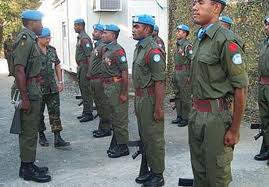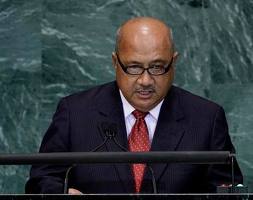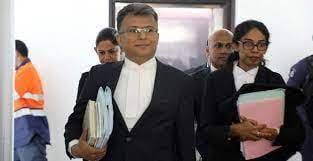
Astonishing details are emerging of the secret role played by the Prime Minister, Frank Bainimarama, in the removal of the Solicitor General, Sharvada Sharma, which has triggered a constitutional crisis in Fiji months out from the 2022 election.
The circumspection and fear of retribution that usually keeps the mouths of insiders firmly shut in Suva has given way to a torrent of information as outrage mounts over the circumstances of the SG’s dismissal. It also encompasses wider concerns about the conduct of the Prime Minister and his Attorney General that go to the heart of their fitness to hold public office.
 A job for the cat in the hat
A job for the cat in the hatPieced together, it is an amazing tale of how the Attorney General, Aiyaz Sayed-Khaiyum, used the Prime Minister and the weight of his office to try to strongarm Sharvada Sharma into resigning for his alleged “misbehaviour” in presiding over the failure of the state case to remove the SODELPA MP, Niko Nawaikula, from the Parliament.
According to multiple sources, Sharma was summoned to the office of the Prime Minister, where he was told by Frank Bainimarama that he had lost the trust of the AG and he wanted his resignation. When Sharma refused, it set in train a series of events that have not only compromised the PM and the AG and triggered a crisis of confidence in their leadership and judgment.
 CJ Kamal Kumar with the AG
CJ Kamal Kumar with the AGWhen the PM’s attempt to get the SG to resign failed, the Chief Justice – as chair of the Judicial Services Commission – advised the President to suspended Sharvada Sharma and then seven weeks later, advised Konrote as the outgoing president to dismiss him.
Yet that dismissal was demonstrably unlawful. The 2013 Constitution stipulates that the Chief Justice – as JSC chair – must set up a formal tribunal of three judges to hear any allegations of misbehaviour against a judicial officer, report its findings to the president and make those findings public. Virtually the entire legal establishment in Fiji is aghast that instead of doing this, Justice Kumar evidently advised the President that he was entitled to dismiss the SG without any formal hearing whatsoever.
Why he did so hasn’t yet been explained, with the government issuing a bald late night announcement of the dismissal two days after it occurred without giving a reason for the termination, let alone addressing the unlawful nature of the decision.
Yet it was unquestionably an illegal act that contravened Fiji’s supreme law and within three months of Kamal Kumar being sworn in as permanent Chief Justice. It is already having far-reaching consequences for confidence in the judiciary and the rule of law in Fiji as Sharvada Sharma and his legal team – led by lawyers Richard Naidu and Jon Apted at Munro Leys – prepare to lodge an application for a judicial review of the decision.
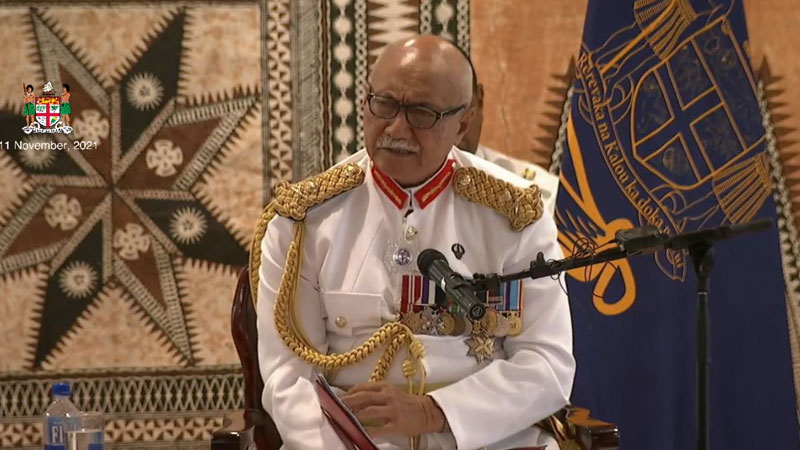 The outgoing president, Jioji Konrote
The outgoing president, Jioji KonroteThe episode has also engulfed and compromised the Chief Justice, Kamal Kumar, and the outgoing president, Jioji Konrote, because their sacking of the SG without a hearing was in direct contravention of the 2013 Constitution.
The Chief Justice is now between a rock and a hard place. Wearing his hat as Chair of the Judicial Services Commission, Kamal Kumar has – according to senior lawyers – already pre-judged the SG’s guilt on the accusation of misbehaviour by unconstitutionally advising that his commission be terminated without a hearing.
So there is no question – they say – of Kumar presiding in judgment over a review of his own decision wearing his hat as Chief Justice. He will have to recuse himself and the application will have to be heard by another judge.
If that judge finds that the SG’s sacking is unlawful because it is in breach of the constitution, where would that leave the Chief Justice, the former President, the Prime Minister, the Attorney General and the man who filed the original complaint against Sharvada Sharma, Supervisor of Elections Mohammed Saneem? We are deep into unknown territory yet as things stand, it isn’t hard to imagine them wallowing in an ocean of pain of their own making in a putt-putt with a broken motor just months from the 2022 election.
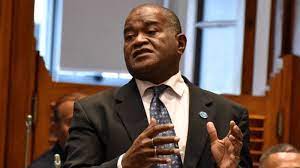 Firebrand MP Niko Nawaikula
Firebrand MP Niko NawaikulaNo-one who knows the inside story is in any doubt that the entire saga has its origins in the AG’s hatred for Niko Nawaikula – the firebrand indigenous nationalist who regularly taunts him in the parliament – and his obsession to have Nawaikula expelled as an MP.
Aiyaz Sayed-Khaiyum evidently saw his chance with Niko Nawaikula’s open admission that he had contested elections using an alias instead of his birth name. And as he has done before, the AG used the Supervisor of Elections as the vehicle for achieving his objective, instructing his house elf, Mohammed Saneem, to mount a court action to remove Nawaikula from the Parliament.
It was meant to have been straightforward – Nawaikula charged with a breach of the electoral laws, tried and removed, all without the AG’s fingerprints on it. But the law wasn’t on the side of Saneem and Khaiyum but Niko Nawaikula.
When the case was heard, it emerged that Saneem had already issued multiple exemptions for others to have their aliases accepted or their details corrected. So why was Nawaikula being singled out for special treatment? Simple. Because whenever the Master tells Dobby to go for it, he does. But whether it is Nawaikula or Sitiveni Rabuka before him, Dobby doesn’t have a great record of accumulating scalps for his Master in the courts.
The hapless Saneem is said to have confided to friends that he simply couldn’t say no to the AG, all of which makes the Dobby the House Elf caricature uncomfortably close to reality.
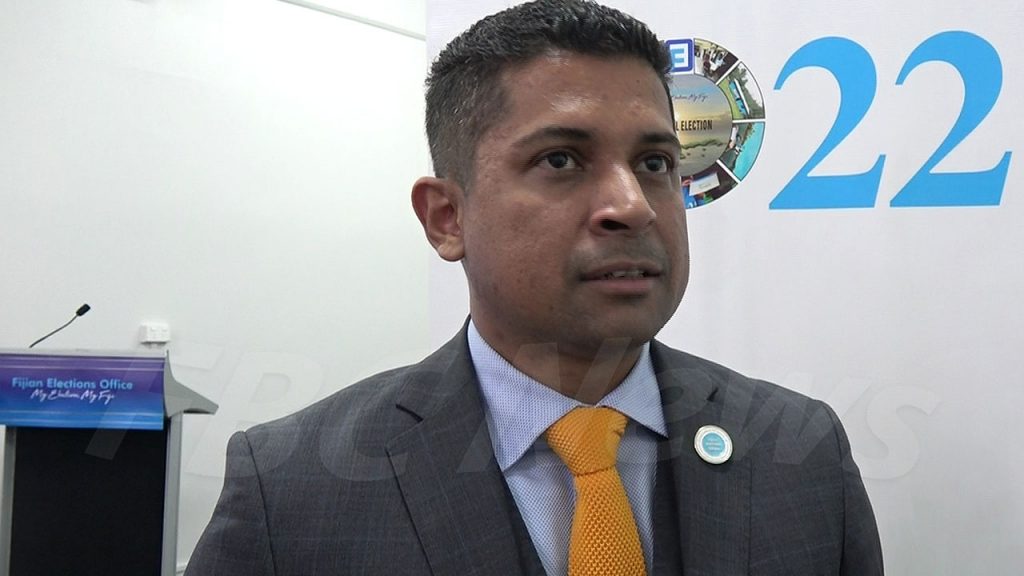 “Dobby the House Elf”: Mohammed Saneem
“Dobby the House Elf”: Mohammed SaneemAccording to senior lawyers, Saneem had a weak case and certainly did not have the legal firepower necessary to bring Nawaikula down. If it did, then why is it that it took Nawaikula’s acquittal and reinstatement to the parliament for the government to introduce tougher laws requiring electors and prospective MPs to use their birth names?
That alone was a tacit admission of flaws in its own legislation. All this should surely have been obvious to the AG and Saneem before and after the trial. But it didn’t stop them from venting their rage in their humiliation at Nawaikula’s victory and triumphant return to the Parliament on the man they sent into battle without the proper legal ammunition.
When the acquittal was announced, the AG took the extraordinary step of complaining publicly about the failure of lawyers on both sides – an unprecedented attack in the media on his own legal team that should have served as a warning to Sharvada Sharma of what was to come.
Yet having given 24 years of dedicated service to the AG’s Department – ten of those years as Solicitor General – and having had a blemish-free career, his friends say Sharma assumed that the AG’s attitude would be the normal one in the face of such a defeat. You win some, you lose some and if you do lose because of deficiencies in the law, then you use your numbers in the parliament to tighten that law rather than drag out your guy in the horse hair wig and shoot him.
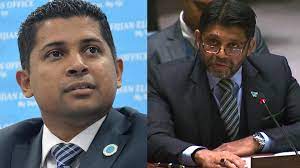 A subservient relationship. The SOE and AG
A subservient relationship. The SOE and AGHow wrong the SG was. Behind the scenes, an enraged AG sooled his house elf Saneem onto Sharvada Sharma, encouraging him to lodge a formal complaint of “misbehaviour” against the SG with the Judicial Services Commission over Sharma’s handling of the Nawaikula case.
Dobby’s forelock-tugging subservience instinctively kicked in. And for Sharma, more than two decades in the civil service amounted to nought as the AG and Saneem made him the scapegoat for laws that they had failed to make watertight.
Flashback to Thursday September 16 – 10 weeks ago today (Thursday Nov 18). As far as Grubsheet has been able to ascertain from third party sources, the following is the sequence of events, beginning with an extraordinary personal summons from the Prime Minister to the Solicitor General to come to a meeting in his office. According to Sharma’s friends, he had no inkling what was in store, though he may have been naïve not to have his suspicions after the AG publicly criticised him – albeit indirectly – for failing to get Nawaikula expelled.
According to his friends, when he was ushered in, the PM came straight to the point in characteristic fashion: “I’ll make this short. I want your resignation”, he reportedly said. Sharma is said to have asked the PM for time to respond to him in writing, which he did the next day and denied the allegations made against him.
 “In happier days”: the SG (left) and PM (second from right)
“In happier days”: the SG (left) and PM (second from right)Then on Monday September 20, he was called again by the Prime Minister to his office, where the PM handed him a pen, pointed to a pre-prepared resignation letter on the desk in front of him and demanded that the SG sign it, telling Sharma he had lost the trust of the AG. When the SG refused, the PM curtly ordered him from his office, telling his military detail to seize Sharvada Sharma’s phone on the way out. For Bainimarama’s chief legal advisor for 10 of his 15 years in power, it was the most humiliating of exits.
In a state of shock – say his friends – Sharma returned to his office on Level 7 of Suvavou House, where the ordeal continued. One of the AG’s bodyguards was waiting for him and demanded his laptop. And that was where the curtain came down on Sharvada Sharma’s decade of loyal service as SG. Even taking into account the sometimes imprecise recollections of third parties, this was clearly an execution of the most brutal and ruthless kind normally reserved for those guilty of grave wrongdoing.
And then later in the evening of Monday September 20, Sharma received a letter from the President’s Office formally telling him that he had been suspended on the recommendation of the Judicial Services Commission and without pay. This was an added humiliation in a government that routinely suspends civil servants on full pay while allegations against them are investigated. And yet another example of the chronic vindictiveness of Aiyaz Sayed-Khaiyum.
 Unambiguous: The 2013 Constitution.
Unambiguous: The 2013 Constitution.What should have happened next to an SG suspended for alleged misbehaviour is laid out in precise detail in the 2013 constitution. It is worth repeating to enable readers to fully appreciate the gravity of what has occurred and the grave injustice inflicted on Sharvada Sharma.
“112- (3) If the President, acting on the advice of the Judicial Services Commission, considers that the question of removing a Judge, Magistrate, Master of the High Court, the Chief Registrar or any other judicial officer appointed by the Judicial Services Commission from office ought to be investigated, then—
(a) the President, acting on the advice of the Judicial Services Commission, shall appoint—
(i) in the case of alleged misbehaviour—a tribunal, consisting of a chairperson and not less than 2 other members, selected from amongst persons who hold or have held high judicial office in Fiji or in another country;
(b) the tribunal …enquires into the matter and furnishes a written report of the facts to the President and advises the President of its recommendation whether or not the Judge, Magistrate, Master of the High Court, the Chief Registrar or any other judicial officer appointed by the Judicial Services Commission should be removed from office; and
(c) in deciding whether or not to remove a Judge, the President must act on the advice of the tribunal …
(6) The report of the tribunal… made under subsection (3) shall be made public”.
While the course of action that the Chief Justice and the President should have taken is unambiguous, no time frame is set for the process. Yet there’s an old saying that justice delayed is justice denied. And it was clearly a denial of natural justice to keep the SG suspended without pay without a timely announcement of a date for the tribunal hearing stipulated by the Constitution.
 Chief Justice Kamal Kumar.A full seven weeks passed and nothing happened. But then came Diwali on Thursday November 4 and Sharvada Sharma – a devout Hindu – was preparing for his religious devotions.
Chief Justice Kamal Kumar.A full seven weeks passed and nothing happened. But then came Diwali on Thursday November 4 and Sharvada Sharma – a devout Hindu – was preparing for his religious devotions.According to his lawyers, suddenly there was a knock at the door and a police officer handed the suspended SG a letter from the Judicial Services Commission. The letter required him to answer 31 detailed questions and gave him a deadline precisely 48 hours later to submit those answers – by 4.00pm on Saturday November 6.
His lawyers advised Sharma that the standard response time given to any officer of state subjected to formal complaint is 14 days yet he had been given just one business day – Friday the 6th – to prepare his defence. On the Friday, Sharma’s lawyers wrote to the Commission describing the time frame as “absurd and unfair” and offered to provide a response within eight working days. But this was immediately rejected by the Commission, which wrote back saying the Saturday deadline was immovable. In response to that, Sharma’s lawyers wrote back on the Saturday telling the Commission that the suspended SG denied all of the allegations in the complaint against him and would provide a detailed response. But he could not and would not do so by the end of the day and rush his response just so the Commission could “tick a box”.
And that’s where things rested until a bolt from the blue on the following Wednesday, November 10, when Sharvada Sharma received a letter signed by HE the outgoing President, Major General Jioji Konrote, terminating his appointment for “misbehaviour” and saying his failure to reply to the Judicial Services Commission’s 48-hour “please explain” deadline was “tantamount to cumulative misbehaviour”.
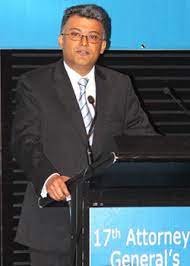 Injustice
Injustice48 hours to answer 31 questions posed seven weeks after his suspension. In the words of another old saying, the wheels of justice turn slowly. But, after a seven week hibernation and deafening silence, they were suddenly turbocharged to lightning speed when it came to dealing with the suspended Solicitor General.
The unconstitutional circumstances of his summary dismissal have sent shock waves through the ranks of those officers of state covered by the Judicial Services Commission, including judges, the Chief Registrar and the DPP.
Because if the right to a Tribunal hearing of an allegation of misbehaviour can be denied to Sharvada Sharma, it can be denied to anyone. Without constitutional protection, they are all a formal complaint away not from a mechanism to defend any allegation against them but from being kicked onto the street.
So why was there such a reluctance in this instance to uphold the constitutional requirement for a tribunal hearing that would have allowed the deposed SG to defend himself?
Was it because there are no grounds to question his conduct beyond losing a case under a law that the government itself acknowledged was deficient by altering it after Niko Nawaikula’s trial? Was it a case of the AG and Mohammed Saneem using the SG as a scapegoat for their loss of face in bringing the case against Niko Nawaikula in the first place?
Did they gamble on Sharvada Sharma not having the stomach for a lengthy legal battle and think he would fall on his sword under the weight of the Prime Minister’s, er, assertive persuasiveness? All this is rich fodder for any judicial review if that review is granted.
IF being the operative word. Because the next phase of this crisis will come if that review is denied.
The rule of law is paramount in any democracy, as is the separation of powers between the executive in the form of the elected government and the constitutional offices, including the judiciary. What has happened in Fiji is a blurring of those lines as the FijiFirst government makes a determined assault on the institutions of state – first by abolishing assessors in criminal trials and setting up a separate FICAC court to try its opponents and now a full- blown assault on the Constitution that it imposed on the nation in 2013 but whose provisions it ignores when it becomes inconvenient.
Make no mistake. Rather than strengthening our institutions to make them more resilient and allow for smooth transfers of power when the people decide a political party has run its course, Fiji under Frank Bainimarama and Aiyaz Sayed-Khaiyum is more dictatorship than democracy – a parliament that is manipulated by the ruling party, opposition figures detained and released at will, institutions stacked with FijiFirst supporters and now blatant defiance of the Constitution, the supreme law.
It is the Zimbabwe road – a journey into darkness and regression as a nation – and Bainimarama and Khaiyum are leading us all down that path.
 Serious questions of conduct.
Serious questions of conduct.And history shows that when the supreme law is disregarded comes the slippery slope of there being one law for the leadership and another for everyone else.
The Prime Minister and the Attorney General have already both left themselves vulnerable to this charge – the PM for allegedly putting a stop to a police drug investigation into a close family member and the AG for allegedly asking his female staff for late night massages while travelling overseas. They are stories that you will never read or hear in the Fijian media. But they go to the heart of their credibility and fitness for high office.
In the case of the PM, the arrest of his close family member for drug possession allegedly triggered a phone call to investigating police threatening not only their own jobs but the disbanding of the entire section unless the investigation was halted. Soon afterwards, the Acting Police Commissioner, Rusiate Tudravu, resigned. Whether the two are linked Tudravu hasn’t said. But at the very least, the episode raises serious questions about the Prime Minister’s conduct and the even-handed application of the law.
In the case of the AG, there were allegedly complaints by female members of his staff that he was in the habit of summoning them to his hotel room while travelling overseas and asking them for massages.
While these were said to be of a non-sexual nature, it evidently caused enough discomfort for the women to raise the issue at a higher level. As with other celebrated cases in the “Me-Too” era, it is the disparity of power and the ability of an employee to say “no” that is the issue, as well as whether the alleged approaches were appropriate.
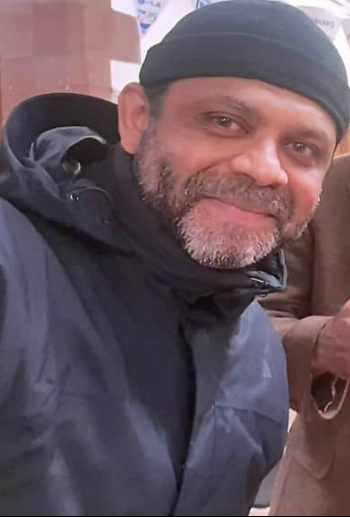 Hands on government. Allegedly someone else’s hands.
Hands on government. Allegedly someone else’s hands.It is believed that complaints made by the women in question to the former deputy solicitor- general, Tracey Wong, were a significant factor in Wong’s subsequent resignation.
She was reportedly sidelined and cold-shouldered when she took it upon herself to raise the issue with the AG – an episode that doesn’t sit well with Khaiyum’s carefully crafted image as someone who empowers young and ambitious women in his office. He prides himself on hands-on government. Occasionally someone else’s hands, it seems.
Morale in the AG’s Chambers – where I worked myself for the best part of six years – has been severely dented by the Solicitor General’s dismissal. His designated successor, Acting Solicitor General, Preetika Prasad, has – according to colleagues – put on a brave face but is said to have been a highly reluctant recruit.
And the resignations of other lawyers in the AG’s Office are a clear indication of general dismay at the SG’s treatment. Sharvada Sharma’s “second” in the Niko Nawaikula matter – the competent and popular Seema Chand – has resigned and so has another valued state lawyer, David Solvalu, who has accepted a position with the private law firm, Howards.
So the AG returns to the office from COP26 at the head of an unhappy ship that is destined to get a lot less happy as the election approaches and he comes under increasing strain. Because even at the best of times, Khaiyum has a reputation for being capricious and erratic. And for his staff, giving him a massage is no assurance of longevity when he has so ruthlessly dispensed with someone of the calibre of the SG, who had loyally served him for ten years and helped him write the constitution to which he now gives the finger.
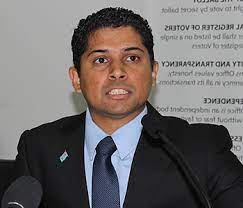 Dobby’s “regret”
Dobby’s “regret”While Aiyaz Sayed-Khaiyum’s self-belief is as immovable as his devotion to Islam and sense of destiny, his house elf, Mohammed Saneem, is said to be somewhat less confident these days. In fact, in the wake of Sharvada Sharma’s dismissal, Saneem – in private at least – is evidently expressing a degree of regret.
The SOE’s cockiness, nervous laugh and oversensitivity to criticism – say those who know him – masks an ambitious, capable yet deeply insecure individual who is acutely aware of the AG’s power to make or break him.
While ever he does his master’s bidding, Saneem is in “make” mode – propelled through the ranks as permanent secretary for justice and then Supervisor of Elections on his seemingly unstoppable path to fulfilling his cherished ambition to be a High Court judge.
Yet Saneem – it seems – has enough self-awareness to realise that he is locked in a Faustian Pact with the AG. And behind the bravado that was again on display on FBC’s For the Record on Sunday night, he is said to be painfully aware that he is now a pariah, especially with his fellow lawyers, and would not survive a change of government. All of which has the effect of binding him to the AG, his Master, even more.
That bond isn’t as strong, of course, as the one between Aiyaz Sayed-Khaiyum and Frank Bainimarama, who the AG prevailed on to try to persuade the SG to go willingly, presumably on the basis that the PM was more likely to intimidate Sharvada Sharma into resigning.
The AG clearly had no idea of Sharma’s strength of character and resolve even after ten years by his side – a lack of judgment about people that will eventually be his downfall.
 Mere Vuniwaqa
Mere VuniwaqaThe tactic backfired with spectacular consequences. And now dismissed in unconstitutional circumstances, Sharvada Sharma is determined to fight to clear his name.
He joins someone else in exile who Aiyaz Sayed-Khaiyum also forced from office in recent months – the former government minister, Mere Vuniwaqa. Former close colleagues (Sharma as SG and Vuniwaqa as permanent secretary for justice), both are loose cannons cast from the ship of state who have the ability to cause considerable damage in an election year. Because if anyone knows where the bodies of the Bainimarama era are buried, they do.
Many people like me wonder how on earth the AG could have been so reckless, with the election countdown in full swing, not to have tied these loose cannons firmly to the deck.
But, of course, it’s always crash through or crash for Aiyaz Sayed-Khaiyum. It’s just that crash now seems the more likely outcome if and when the people finally get their say.
Most Fijians have developed a distaste for the AG’s controlling and punitive manner and the PM’s faux bonhomie and barely concealed irritation with everything.
And after 15 years, people are generally sick of the sight of both of them, with their supercilious grins and factory-generated messaging, including such gems as “Covid-19 has made us stronger”, blah, blah, blah. Even with their handling of the Covid calamity, there are 694 reasons not to re-elect this tired old duo – the disproportionately high number of Fijian dead and counting.
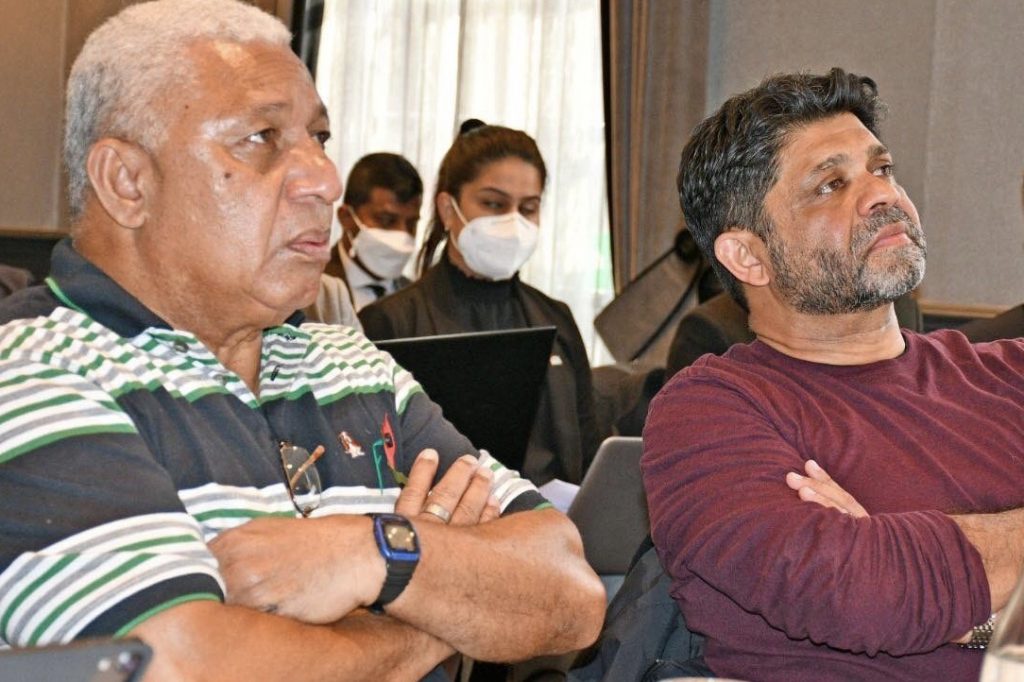 Game’s up.
Game’s up.We’re through with the swaggering cowboy act and we didn’t vote for outlaws. In the final analysis, like all governments, the time has come for FijiFirst to reinvigorate itself with a period in opposition.
So they can at least do us the honour of obeying the constitution they imposed, give us a free and fair election and leave quietly when the Fijian voters decide “it’s time”. Oh and tell your people with the guns that the will of the Fijian people’s is paramount and the people have the right to choose even a “snake” to lead them if that’s what they want. Because that’s democracy.
Alas, I personally have little confidence that Frank Bainimarama and Aiyaz Sayed-Khaiyum will do the right thing. Because like all tyrants (the definition in ancient Greece was a ruler who seized power unconstitutionally), they think what’s right for them is right for everyone else. Democracy, Bai-Khai style. And bugger anyone else.
Club Em Designs



